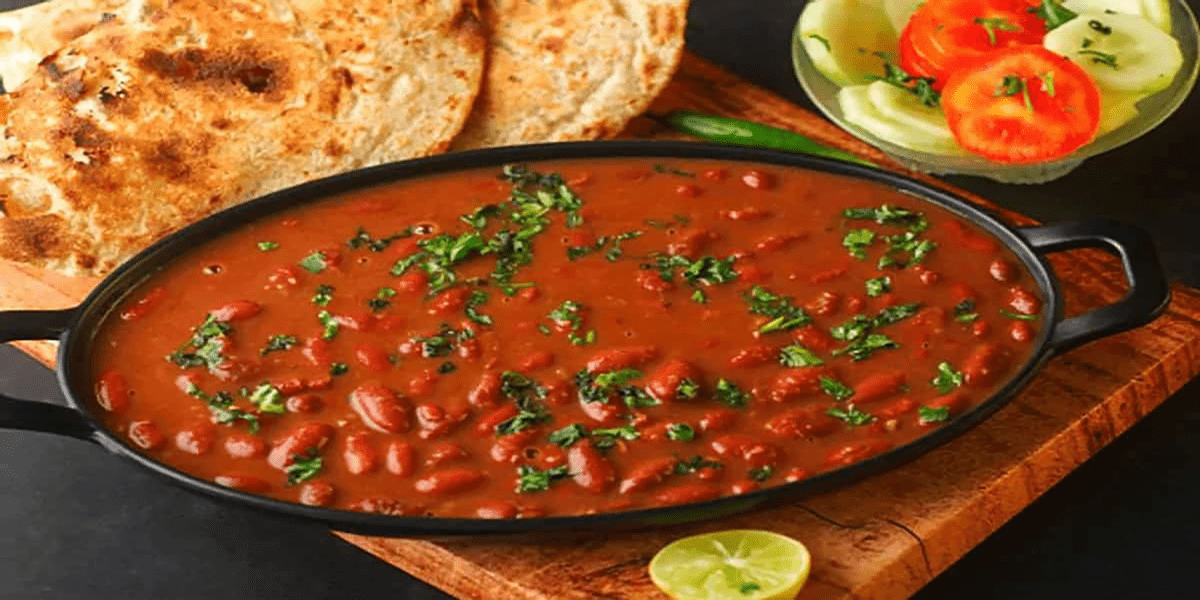Savoring Tradition: A Soulful Rajma Curry Recipe for Comfort and Flavor
Introduction: Rajma curry, a quintessential dish in Indian cuisine, holds a special place in the hearts and palates of millions. Known for its rich flavor, creamy texture, and wholesome goodness, rajma, or kidney beans, has become a staple comfort food across the country. Rajma isn’t just a flavorful delight; it’s also a nutritional powerhouse. Packed with protein, fiber, and an array of essential vitamins and minerals, kidney beans offer a wholesome and nourishing option for vegetarians and non-vegetarians alike. The combination of protein from rajma and carbohydrates from rice or bread creates a well-rounded and satisfying meal.
Ingredients:
1 cup dried kidney beans (rajma)
2 large onions, finely chopped
2 tomatoes, pureed
2 tablespoons cooking oil or ghee
1 tablespoon ginger-garlic paste
1 teaspoon cumin seeds
1 teaspoon turmeric powder
1 teaspoon red chili powder
1 teaspoon coriander powder
1 teaspoon garam masala
Salt to taste
Chopped fresh coriander for garnish
Instructions:
Soaking the Kidney Beans: Wash the dried kidney beans thoroughly and soak them in water overnight. This helps in reducing the cooking time and ensures even cooking.
Cooking the Kidney Beans: In a pressure cooker, add the soaked kidney beans with enough water and a pinch of salt. Cook until the beans are soft and easily mashable. Set aside.
Preparing the Base: In a separate pan, heat oil or ghee. Add cumin seeds and let them splutter. Add finely chopped onions and sauté until golden brown.
Adding Spices: Add ginger-garlic paste and sauté until the raw aroma disappears. Stir in the pureed tomatoes and cook until the oil separates. Add turmeric, red chili powder, coriander powder, and salt. Cook the masala until it releases a rich aroma.
Combining Beans and Masala: Transfer the cooked kidney beans to the pan with the masala. Mix well, ensuring the beans are coated with the flavorful mixture. Add water to achieve the desired consistency.
Simmering and Garnishing: Let the Rajma simmer on low heat for about 15-20 minutes, allowing the flavors to meld. Sprinkle garam masala and garnish with fresh coriander.
Serving: Serve the Rajma hot with steamed rice or Indian bread like roti or naan. A dollop of yogurt and a side of pickles complement the dish perfectly.
Conclusion: This Rajma recipe is not only a culinary delight but also a powerhouse of protein and essential nutrients. With its robust flavors and simple preparation, it’s a perfect addition to your regular menu, offering a taste of authentic Indian comfort food. Enjoy this wholesome Rajma dish with family and friends, savoring the heartiness of a home-cooked meal.
Smaller-sized rajma, such as Jammu rajma, cooks faster than larger varieties due to quicker water absorption. Soaking them overnight and using a pressure cooker can further expedite the cooking process. However, actual cooking times can vary based on factors like bean freshness. Following recipe instructions is key for optimal results.
There are several types of rajma, but two main varieties are commonly used in Indian cuisine:
- Jammu Rajma: Smaller in size, it cooks faster and is popular in the northern regions of India.
- Chitra Rajma: Larger and kidney-shaped, commonly used in the southern parts of India. Other varieties include light red, dark red, and speckled kidney beans, each with slight differences in size and color. The choice of rajma depends on regional preferences and recipe requirements.
Rajma, or kidney beans, offers several health benefits:
Rich in Protein: Rajma is an excellent plant-based source of protein, essential for muscle repair and overall body function.
High in Fiber: The high fiber content promotes digestive health, helps regulate blood sugar levels, and contributes to a feeling of fullness.
Nutrient-Rich: Rajma contains essential nutrients such as iron, potassium, magnesium, and B vitamins, supporting various bodily functions.
Heart Health: The fiber, potassium, and folate in rajma contribute to heart health by helping to regulate blood pressure and reduce the risk of cardiovascular diseases.
Weight Management: The combination of protein and fiber in rajma can aid in weight management by promoting satiety and supporting a balanced diet.

